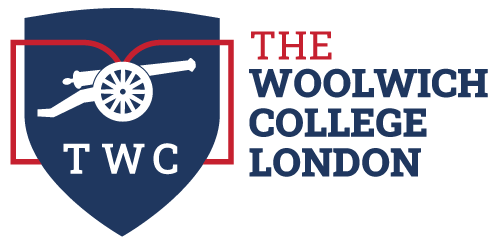Pharmacy Technician, Level 3
BTEC Level 3 Certificate in The Principles and Practice for Pharmacy Technician
The Level 3 Diploma in ‘The Principles and Practice for Pharmacy Technician’ is a Pearson BTEC qualification that is specifically designed for learners who wish to qualify as a pharmacy technician and are currently working as a pre-registration trainee pharmacy technician.
Duration of the course: minimum of 24 months
Awarding Body: Pearson
Start Date: May 2025
Class Schedule: Fortnightly on Tuesdays (7 PM-8:30 PM)
Mode of Delivery: Online
Study Type: Self-paced
Total Fees: £6,250.00 Special Offer Price (20% Off): £5,000.00 (Total Fee is inclusive of Initial Deposit Fee
Initial Deposit Amount: £299.00
No Additional Fees
Seats Remaining: 5
Payment Options
|
|
|||
|
|
|
||
|
|
|
||
|
|
|
||
|
|
|
||
|
|
|
||
|
|
|
||
|
|
|
|
|
|
|
|
|
|
*One-off and two instalment payments included a £299.00 deposit fee
Tuition fees can be paid using one of the following methods: Credit or debit card or bank transfer.
Money back is guaranteed within 14 days from the commencement of the course, if you’re not satisfied with your course experience.
Course Description
We are at a time where the pharmacy is changing and as such, the responsibility of the pharmacy technician is growing and the need for professional recognition increasing. That is why we are introducing the online level 3 Pearson BTEC Diploma in ‘The principles and Practice for Pharmacy Technicians’. This is a brand new course that brings together the Pearson specification with accreditation from the GPhC, making it perfect for pre-registration trainee pharmacy technicians, who wish to receive a nationally recognised qualification.
This is an integrated course that is tailored to suit the needs of the learner and the pharmacy. By going through the TWC London’s own in-house quality assurance process, we can confidently deliver our students the highest quality of training via our online platform, through a combination of live classes and learning resources. Our online classes give learners the opportunity to discuss their studies with other learners whilst receiving advice, guidance, and support from an experienced pharmacy professional.
Throughout the course, students are required to complete 21 mandatory units. Every student is provided with a personal assessor, and assessment of the qualification is completed through a combination of assignments and work-based assessments. On completion of the course, students will be able to apply for professional registration with the GPhC as a pharmacy technician.
Course Requirements and Suitability
This course is suitable for someone working a minimum of 14 hours a week as a part of a pharmacy support team, who wishes to embark on a career as a pharmacy technician.
- Students must be working in a pharmacy and/or have at least 2 years learning on the job work experience
- Students will also need to have GCSEs Grade A*to C and/or 9 to 4 in English, Maths, and science or a Pharmacy Level 2 qualification
Qualification Delivery
This qualification is delivered online, through a combination of live classes and learning resources. Each student is assigned a personal assessor and our online classes give them the opportunity to discuss their studies with other learners whilst receiving advice, guidance, and support from an experienced pharmacy professional.
Students must complete 21 mandatory units.
| Unit No. | Unit Title |
|---|---|
|
Unit 1 |
Principles of Person-Centred Approaches for Pharmacy Technicians |
|
Unit 2 |
Principles of Health and Safety for Pharmacy Technicians |
|
Unit 3 |
Personal Development for Pharmacy Technicians |
|
Unit 4 |
Principles of Health Promotion and Well-being in Pharmacy Services |
|
Unit 5 |
Contribute to Service Improvement in the Delivery of Pharmacy Services |
|
Unit 6 |
Principles for the Management of Pharmaceutical Stock |
|
Unit 7 |
Undertake Medicines Reconciliation and Supply |
|
Unit 8 |
Assemble and Check Dispensed Medicines and Products |
|
Unit 9 |
Receive, Validate and Issue Prescriptions |
|
Unit 10 |
Chemical Principles for Pharmacy Technicians |
|
Unit 11 |
Biological Principles for Pharmacy Technicians |
|
Unit 12 |
Medicinal and Non-medicinal Treatments for Gastrointestinal and Nutritional Conditions |
|
Unit 13 |
Medicinal Treatments for Cardio-respiratory Conditions |
|
Unit 14 |
Medicinal and Non-medicinal Treatments for Malignant Diseases and Musculoskeletal Conditions |
|
Unit 15 |
Microbiology for Pharmacy Technicians |
|
Unit 16 |
Actions and Uses of Medicines |
|
Unit 17 |
Medicinal and Non-medicinal Treatments for Central Nervous System Conditions |
|
Unit 18 |
Medicinal Methods for the Prevention, Protection from and Treatment of Infections |
|
Unit 19 |
Medicinal Treatments for Endocrine, Gynaecological and Genitourinary Conditions |
|
Unit 20 |
Medicinal Treatments for Sensory Organ Conditions |
|
Unit 21 |
Principles of Safe Manufacture of Quality Medicines in the Pharmaceutical Environment |
Assessment Opportunities
Assessments are both modular and competency-based – both of which are to be submitted online and are compiled into a portfolio of evidence. This can include multiple-choice questions, case studies, and calculation papers.
- Competency-based assessments include: Observations, professional discussions, reflective accounts and witness testimonies
- Knowledge-based (Unit) assessments include: Written assignments and presentations
Progression Opportunities
On completion of this course, students will be eligible to apply for professional registration with the GPhC as a pharmacy technician.
A pharmacy technician is vital in supporting community pharmacy by providing safe and effective pharmacy service, supplying medicines and devices to patients, achieving the best outcomes through a patient’s medicines, assembling and checking medicines for prescriptions, and providing information to patients and other healthcare professionals.
Studying this course will also give students credits and skills that will benefit them in a range of careers within the sector. Key areas of development include:
- Professional attitude and behaviour
- Transferable skills and knowledge for progression within the pharmacy sector
- Ability to carry out accuracy checks on prescriptions
- An enhanced skill mix within the pharmacy team
- An understanding of biological and chemical principles
- Knowledge of medicinal treatments for common medical conditions
- Leadership skills
FAQs
Pharmacy Technician, Level 3 is a minimum of 24 months
Pharmacy Technician, Level 3 duration is based on the guide learning hours and teaching hours set by the awarding body
Pharmacy Technician, Level costs £6,250.00 (Total Fee is inclusive of Initial Deposit Fee)
1 day a week. Lessons are held online
September 2025
Pharmacy Technician, Level 3 students will have to do a minimum of 14 hours a week in a work placement
We have a very good success rate of placing students in a work placement but this isn’t always guaranteed. We will try to place you within an hour’s travel distance from your home
It’s down to the employer’s discretion. This is something you can discuss during your interview process
No, we do not assist you to find a job
Students can fill out an application online https://www.twclondon.org.uk/apply-here
Copies of your documents can also be emailed to admissions@thewoolwichcollege.org.uk
Students need to have English and Maths at GCSE level or equivalent (Level 2 qualification) whether this is from the UK or EU. All qualifications from abroad need to be translated into English before the student can enrol
Students also need to have at least 2 years work experience in a Pharmacy (either in the UK or abroad)
Your qualifications can be translated into English by UK NARIC
https://www.enic.org.uk/individuals/statement-of-comparability/apply
- Photo ID (Passport)
- Proof of Address (dated in the last 3 months)
- Visa Status either a British Passport, BRP (Biometric Residence Permit) which is dated for after the end of the course duration or a Share Code (if you are from Europe)
- NI Number (National Insurance Number) or right to work in the UK documentation
- Certificates of your previous qualifications (qualifications from abroad must be converted)
- UK Naric statement of comparability (for converted qualification from abroad)
- Up to date CV (Curriculum Vitae)
- Health Declaration (Form can be requested from the college)
- Character References (Form can be requested from the college)
There are a few other fees that are separate from the course fee. They are Deposit Fee and Awarding Body Registration Fee. There is also a fee for the BKSB Assessments:
- Deposit Fee is £299.00
- Pearson Awarding Body Registration Fee for Pharmacy Technician, Level 3 is £260.05
Pearson
Yes, there are three different payment options:
- One-off Payment (5% Discount)
- Two Instalments
- Monthly Instalments (20 Months)
Self-Funded (Bank Transfer, Direct Debit or Credit Card)
No, if you require a student visa to study in the UK or you are a tier 4 student, we cannot accept you as we do not have the license. We can only accept UK and EU students or those with settlement status (indefinite leave to remain) here in the UK
All students must be 18 and over to study here at The Woolwich College
From the moment you submit your application, documents and pay the deposit fee it should take up to 2-3 weeks for you to be fully enrolled onto the course
Students must have at least 2 years’ experience working in a Pharmacy (either in the UK or abroad)
On completion of this course, students will be eligible to apply for professional registration with the GPhC (General Pharmaceutical Council) as a pharmacy technician.
A pharmacy technician is vital in supporting community pharmacy by providing safe and effective pharmacy service, supplying medicines and devices to patients, achieving the best outcomes through a patient’s medicines, assembling and checking medicines for prescriptions, and providing information to patients and other healthcare professionals.
Studying this course will also give students credits and skills that will benefit them in a range of careers within the sector. Key areas of development include:
- Professional attitude and behaviour
- Transferable skills and knowledge for progression within the pharmacy sector
- Ability to carry out accuracy checks on prescriptions
- An enhanced skill mix within the pharmacy team
- An understanding of biological and chemical principles
- Knowledge of medicinal treatments for common medical conditions
- Leadership skills
Where our graduates work..




